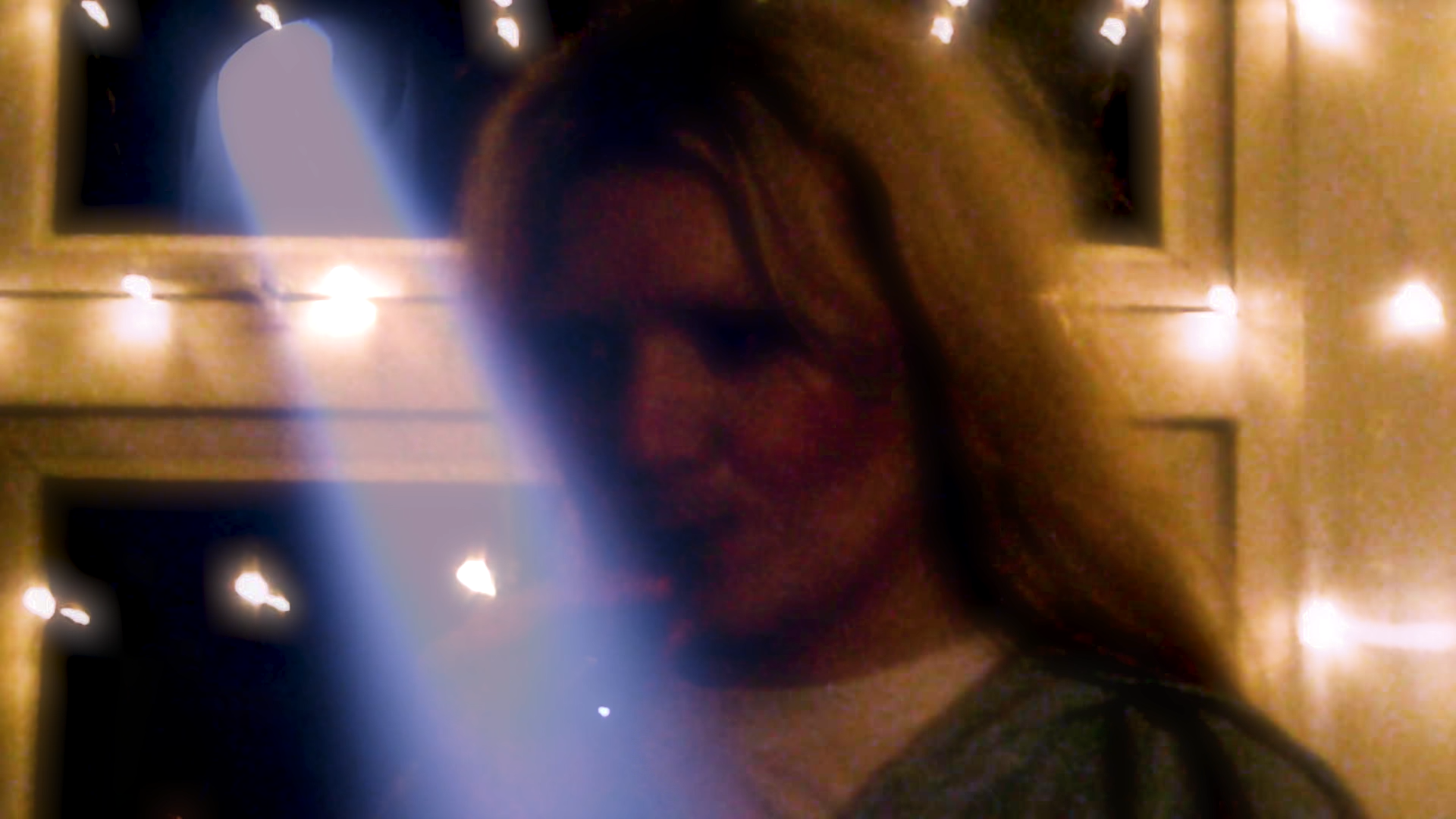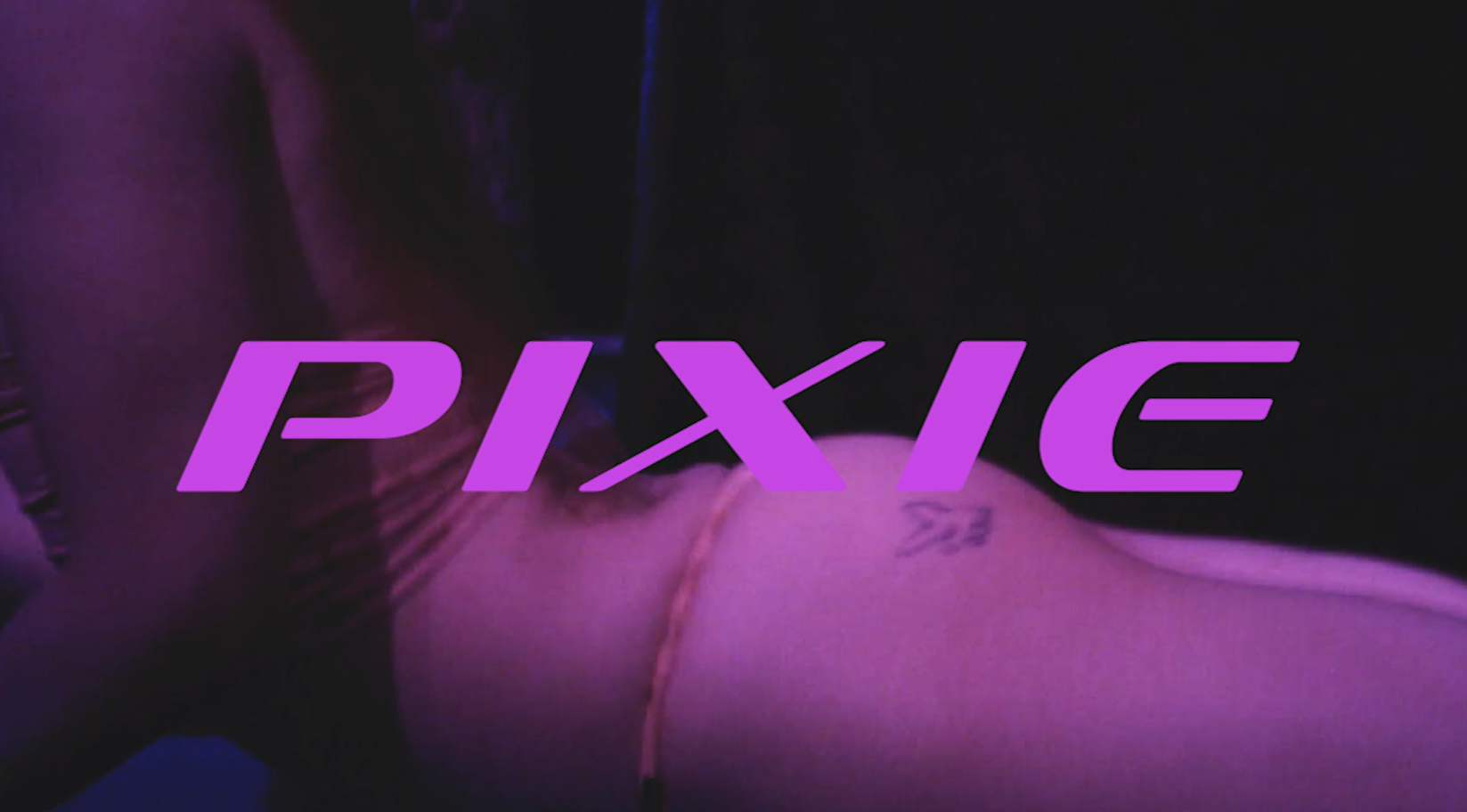Interview | Beth Johnston: Pixie | Sabrina Sigler
Beth Johnston is a filmmaker based in Glasgow whose most recent offering, a vibrant and poignant portrait of a local IT Girl, Pixie, debuted at the Scottish Queer International Film Festival this September.
Filmed on a digital camcorder, the short film cuts between the strobe lights of a nightclub, the nostalgic girlhood of Pixie’s bedroom amongst photos of her past and present. Pixie shares her thoughts on trans representation and some of her own journey through the years. The film climaxes with a stunning scene of Pixie performing at Fast Muzik, a queer club night to the sound of Glasgow DJs, TAAHLIAH and KAVARI.
I spoke to Beth to learn more about the film and her own inspirations as a filmmaker for the people.
Q: How did the film come about?
A: The film was originally developed for my MA Filmmaking course as a documentary focusing on nightlife photography in the Glasgow queer scene. In particular, there were these gorgeous images of Pixie taken by Andrea Brodie that I loved so much so it made sense to interview her as part of that project.
I’ve known Pixie from out and about over the years - she’s such a Glasgow IT Girl and she was so charismatic in her interview. We decided to change the focus of the documentary to tell her story.
Q: Can you share more about the process of making the film?
A: The film was made in November 2021, almost two years ago now, and it was made quickly on no budget. It was the first documentary I made, and it was such a learning curve! There were multiple interviews conducted over a short space of time, and I was so grateful to Pixie for how open she was to the process. Although we already knew each other a bit, it was very moving to hear her talk so candidly about her life.
The finale of the film was shot at Fast Muzik in Stereo in November 2021 where Pixie was performing. I showed up by myself around midnight and it was such a friendly crowd, I ended up tagging along with people I knew from other nights out. I spent the night down the front with my wee camcorder in hand, sort of like Regina George’s mum in Mean Girls, filming Pixie go-go dancing.
We were really lucky that when we contacted untitled (recs), they gave us permission to use the TAAHLIAH & KAVARI track ‘Transdimensional’. I listened to TAAHLIAH’s Angelica EP so much in 2021, I was so excited that we were able to use that song!
Q: Were there any particular inspirations you had for the film?
A: A huge reference point for Pixie was Shakedown (2018), a documentary chronicling Black underground lesbian strip club culture in Los Angeles in the late 1990s. It’s one of my favourite films and it’s available to watch for free on the film’s website - I can’t recommend it enough.
Both the archive and interview footage in Shakedown film is shot on VHS camcorders. For me, the low-fi quality of the image creates a sense of intimacy for the viewer reminiscent of home videos and communicates the underground nature of the community the film is capturing. The footage of Pixie dancing in the club during the final moments of the film is inspired by the footage from the film.
It might be a bit obvious but it’s difficult to make a film on a city’s queer scene without referencing Paris Is Burning (1990). It’s a classic for a reason! And the scenes of Venus Xtravaganza lounging on her bed are so beautiful and intimate - I definitely kept those interviews in mind during production.
“There’s a manifesto by Juan García Espinosa called ‘For an Imperfect Cinema’ in which he predicts a future where the development of video technologies will disrupt elitist filmmaking traditions and allow a new era of ‘an art of the people’.”
Q: How did you choose the unique cinematography style?
A: Pixie is not the first film I have made which utilises digital camcorder technology and there were many factors that led to my decision to shoot predominantly on a cheap digital camcorder. As an artist, the use of camcorder is not just aesthetic, but also political. There’s a manifesto by Juan García Espinosa called ‘For an Imperfect Cinema’ in which he predicts a future where the development of video technologies will disrupt elitist filmmaking traditions and allow a new era of ‘an art of the people’.
That’s something I’m really interested in, especially in a country with so few funding opportunities for filmmaking. I’m really inspired by Agnes Varda’s attitude to art and filmmaking and the way she embraced digital cameras in her film The Gleaners and I (2000). To me, art is for everyone and I want everyone to have access to creating art. I think creating films using these cheap camcorders or even filming on your phone should be considered just as valid as using Arri cameras that cost tens of thousands of pounds.
Q: I love the way the cinematography, the editing, and the club environment all complimented each other. Could you share more about this?
A: Of course, I really wanted to recreate the exhilaration of a queer club night. The video camera footage used in the documentary is intentionally blurry and distorted and this texture reflects the textures of Pixie’s story. By shooting on a camcorder, I was also granted access to shoot the final clubbing footage of Pixie as they are a much less disruptive presence in a club than a traditional, expensive camera set up.
I think this allowed me to capture the feeling of the club and the queer scene without disrupting the night itself which in turn allowed us to document an authentic portrayal of the night and the scene.
“I truly believe that Trans People Make Glasgow and I think of this film a love letter to all my trans and queer friends who have found family and community in Glasgow.”
Q: What is the main thing you want viewers to take away from the film/an impact you want it to have?
A: I originally set out to document and celebrate Glasgow’s queer nightlife and I think the film shows the importance of that scene for Pixie and so many other people. I truly believe that Trans People Make Glasgow and I think of this film a love letter to all my trans and queer friends who have found family and community in Glasgow.
I’m so grateful that Pixie was so open to being involved in the project and I really just want everyone to see what a gorgeous, hilarious icon she is!
Q: What’s next for the film?
A: In the new year, I plan to release the film online but before then there’s a couple of screenings coming up. Pixie will be screening at the Bradford Queer Film Festival in November and I’m also super excited about a screening in Havana in December in collaboration with Havana Glasgow Film Festival as part of a series of feminist films from the two twinned cities.
Q: Can you share more about your background as a filmmaker/your personal inspirations?
A: I’ve been making films for a few years now working in fiction, documentary, and music videos. As a filmmaker, I’m interested in exploring the often-ugly realities of navigating the world as a woman. The films that I love the most are ones that explore these similar themes.
There are too many filmmakers I love to mention them all but I particularly love Lynne Ramsay, Julia Ducournau, Agnes Varda and Chantal Akerman. Right now, I’m so inspired by the talent coming out of Scotland and I think it’s a really exciting time - hopefully this means we won’t have to keep relying on funding opportunities from down south but that might be a bit too hopeful. Going forward, I have a couple of projects I’m working on over the next wee while including a documentary exploring the lives of women here in Glasgow and in Havana, Cuba.
Beth’s Instagram: @urpalbeth





